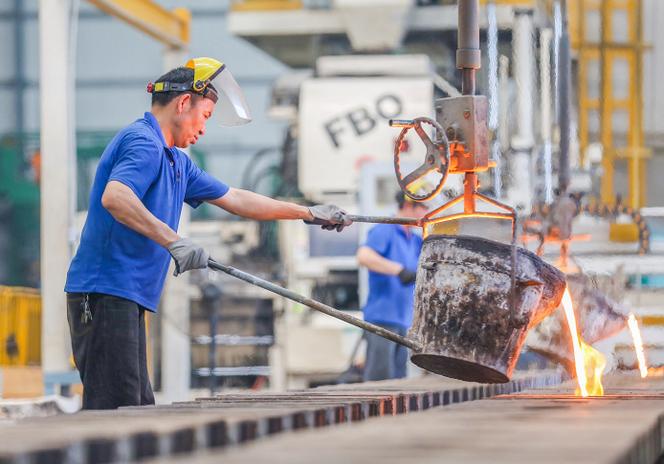


There's no better way to end a family feud than to find a common enemy. The European Union and the United States are on the verge of doing just that, at China's expense. It concerns steel imports. According to the British daily The Financial Times, by the end of October, Europe is expected to announce the launch of an anti-dumping investigation against Chinese steel as part of an agreement with Washington.
The US-EU quarrel dates back to 2018 when US President Donald Trump decided to impose a tariff of nearly 25% on steel and aluminum imports from China, but also from Europe. Brussels retaliated by penalizing imports of bourbon and Harley-Davidson motorcycles. Not exactly nuclear weapons, but it was the start of a long dispute, even though these measures and retaliations were frozen in 2021.
To find a way out of this situation, an initiative called the "Global Arrangement on Sustainable Steel and Aluminum" has been set up. An agreement in principle is due to be announced at a meeting in Washington on October 20.
Beyond settling a nasty quarrel, this focus on Chinese imports is part of a wider concern for Europe about the difficult coexistence of its climate ambitions and the maintenance of its manufacturing industries. The enforced end of combustion engines in cars is panicking European manufacturers, who are warning of a flood of Chinese cars, while the promotion of renewable energy also threatens to result in an upturn in imports.
Investigations in the name of competition are a method of fighting that has the advantage of being compatible with international trade rules. On September 13, Brussels announced the launch of such proceedings against electric cars, and competition commissioner Didier Reynders indicated on October 6 that he might do the same with wind turbines.
Brussels' other weapon is the carbon border tax. An old demand of the steel industry, it entered the transitional phase on October 1 and will affect, among other things, imports of steel, aluminum, cement, fertilizers, hydrogen and electricity. Beginning in 2026, this carbon tax will apply to imported products in the same way as their European equivalents. The fortress is being erected with enormous uncertainty: What will be the consequences for downstream sectors that might be tempted to set up shop elsewhere to buy their steel more cheaply? The end of 20 years of free trade will not come without sacrifice.
Translation of an original article published in French on lemonde.fr; the publisher may only be liable for the French version.
